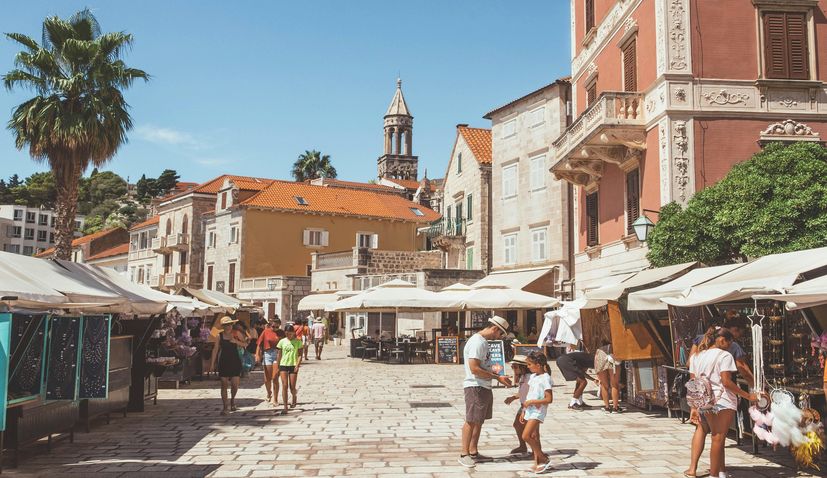What salary Croatians say they need to live comfortably
- by croatiaweek
- in News

Hvar
As inflation and the rising cost of living continue to squeeze household budgets, many people across Croatia are asking a simple but pressing question: Is my salary really enough?
Despite official statistics pointing to a rise in wages, the reality for many doesn’t feel quite so promising.
According to the latest data from the Croatian Bureau of Statistics, the average net salary for February was €1,416 – a 13.5% increase compared to the same month last year, Večernji list reports.
Meanwhile, the average net hourly wage rose to €8.72, marking a 19% jump from February 2024.
Still, many Croatians say they are struggling to make ends meet. Rising prices of basic goods and services are outpacing what people take home each month.
And while numbers on paper suggest progress, the everyday experience paints a different picture.
The question remains: What would actually be a fair salary in today’s Croatia – one that covers costs, eases stress, and offers a bit of comfort?
That very question was recently posed by a Reddit user, who asked fellow Croatians what monthly income they would consider satisfying in 2025.
Responses varied, but the underlying message was clear – many feel current wages fall short of the mark.
While a few responses aimed high, the majority agreed that a monthly salary of around €2,000 would hit the “sweet spot” — enough to cover basic needs, reduce stress, and allow a bit of comfort.
Some admitted that even €1,500 would be livable.
One user shared their own situation — renting a flat with a monthly income of €1,200, no car, and spending less than most people around them. Even so, they admitted they can’t save anything, saying: “I end up with exactly zero every month – one day before payday.”
Others echoed similar worries. Many feel stuck between two tough options: taking a risky mortgage or renting at high prices with little stability. For those who don’t own property, there’s the constant uncertainty of landlords raising rents or changing terms.
One user joked that future job ads in Croatia might include “must have resolved housing situation” as a requirement.
Another woman shared her frustration at not being able to plan anything beyond basic living expenses. She and her husband pay all their bills and avoid debt — something not everyone can manage — but even then, every spare euro is already spoken for.
She added: “I’ve learned to think three times before spending any kuna or euro. If I didn’t have to worry about money, I honestly don’t know what I’d do with myself.”
One commenter also pointed out how financial habits that once seemed like personal choice or even laziness are now a luxury few can afford. He described a colleague earning €1,900 a month, with a flat and car provided by his parents — yet somehow still ending each month in debt.
At the end of the day, the conversation reveals a deep and growing concern among Croatians: not just about making ends meet, but about finding any room for peace of mind.
Whether the magic number is €1,500, €2,000 or more, one thing is clear — many people are feeling the squeeze.
How much an average family inCroatianeeds to get through a month, including rent. Read here.









